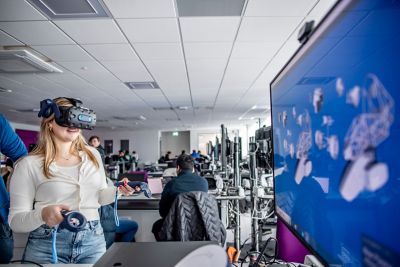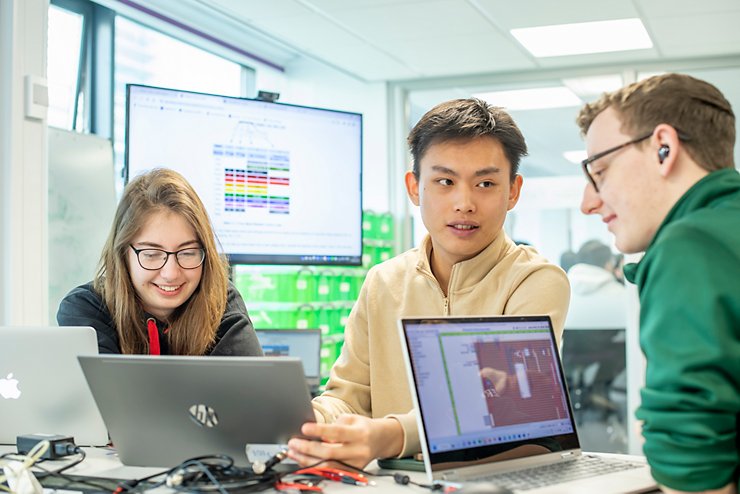Alternative qualifications
We recognise that applicants have a wealth of different experiences and follow a variety of pathways into higher education.
Consequently, we treat all applicants with alternative qualifications (besides A-levels and the International Baccalaureate) on an individual basis and we gladly accept students with a whole range of less conventional qualifications including:
- Access to HE Diploma
- Advanced Diploma
- BTEC Nationals
The entry requirements for alternative qualifications can be quite specific; for example, you may need to take certain modules and achieve a specified grade in those modules. Please contact us to discuss the transferability of your qualification. Please also see the alternative qualifications page for more information.
RQF BTEC Nationals
As part of the application process BTEC applicants without A level Maths will receive an invitation to attend a meeting with an academic member of staff.
The meeting will assess applicants' mathematical capability alongside their ability to build on their potential if they start straight into a course where their current maths preparation is not as rigorous as those holding other specific Mathematics qualifications.
For many BTEC applicants, the best route into an engineering degree is via a foundation course. The meeting, along with the UCAS application, will be used to help us decide whether we feel it is in the best interest of the applicant for us to make an offer for the applied-for course or be recommended to the foundation year. Our primary objective is to ensure that our students are fully prepared for year one to maximise the likelihood of achieving their study goals with us.
For those with lower predicted grades, applications will be considered for entry onto the foundation year.
For those considered for year one entry, our typical offer is as follows:
RQF Level 3 BTEC National Extended Diploma in Engineering – D*DD including Distinction in units:
- Engineering Principles,
- Calculus to Solve Engineering Problems and
- Further Engineering Maths
RQF Level 3 BTEC National Diploma in Engineering or Science and A Levels – D*D + A in A Level Maths
RQF Level 3 BTEC National Extended Certificate in Engineering and A Levels – D + AA to include A Level Maths
RQF Level 3 BTEC National Extended Certificate in any subject and A Levels - D + B in A Level Mathematics and a B in on of A Level Physics, Chemistry, Biology, Electronics, Design & Technology, Computing, Further Mathematics, or Design Engineering
Access to HE Diploma
Access to HE Diploma 36 Level 3 credits at Distinction (to include a minimum of 15 Level 3 credits at Distinction in Mathematics) and 9 Level 3 credits at Merit.
Extended Project Qualification (EPQ)
If you have already achieved your EPQ at grade A you will automatically be offered one grade lower in a non-mandatory A level subject. If you are still studying for your EPQ you will receive the standard course offer, with a condition of one grade lower in a non-mandatory A level subject if you achieve an A grade in your EPQ. Please note that if you qualify for an enhanced contextual offer, your EPQ will not be taken into consideration as we are unable to make any further adjustments to your offer.
Contextual offers
We make contextual offers to students who may have experienced barriers that have restricted progress at school or college. Our standard contextual offer is usually one grade lower than the advertised entry requirements, and our enhanced contextual offer is usually two grades lower than the advertised entry requirements. To qualify for a contextual offer, you must have Home/UK fee status and meet specific criteria – check if you’re eligible.
BTEC/Access/HND qualifications are considered on an individual basis.
Transfer to MEng is possible during the course subject to satisfactory progression.
Foundation progression options
An Engineering and Physical Sciences foundation year is available for those who are not taking the required subjects.
Mature students
At the University of Nottingham, we have a valuable community of mature students and we appreciate their contribution to the wider student population. You can find lots of useful information on the mature students webpage.






